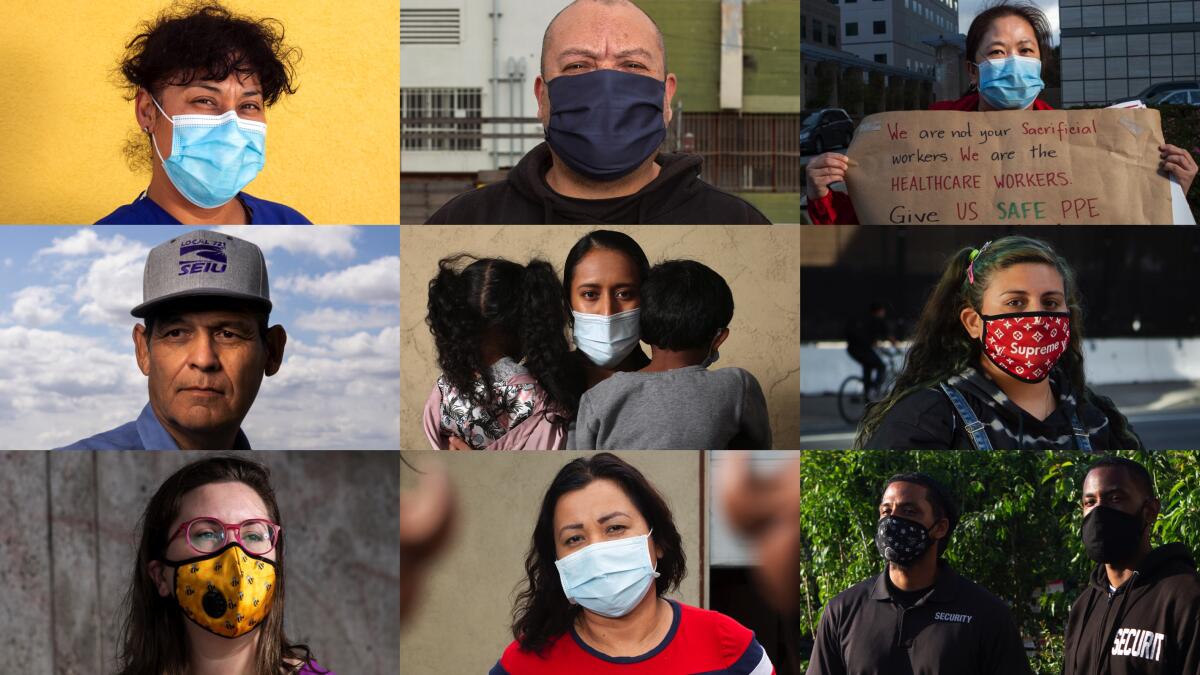California workers will see more paid sick time off under new law

- Share via
SACRAMENTO — California workers will be entitled to five paid sick days, up from the current three, under a new law signed by Gov. Gavin Newsom on Wednesday.
The state’s powerful labor unions lobbied heavily for the legislation, which stalled at the Capitol in previous years but gained momentum after the COVID-19 pandemic cast new light on public health and the need for essential worker protections.
“Too many folks are still having to choose between skipping a day’s pay and taking care of themselves or their family members when they get sick,” Newsom said in a written statement. “We’re making it known that the health and wellbeing of workers and their families is of the utmost importance for California’s future.”
Newsom’s decisions on labor laws have been under scrutiny amid ongoing worker strikes as the unions that helped get him elected and stave off a recall have criticized him for recent vetoes of legislation including bills to give striking workers unemployment benefits and domestic workers OSHA protections.
The bill signed into law on Wednesday was lauded by the California Labor Federation and Service Employees International Union in California, which sponsored the sick-time expansion, and comes after Newsom also received accolades from unions for signing a law to increase pay for fast-food workers.
The legislation initially proposed providing seven days of paid sick leave, but that was reduced to five days after lawmakers heard testimony from supporters and opponents during the committee process and considered the price.
The law is estimated to cost the state and federal government $34.6 million in its first year and $67.2 million annually after that as part of an expansion of the policy to include home health workers. Additional one-time costs — such as $1 million for payroll logistics — are also expected.
There is no federal law requiring paid sick leave, but states including New York and New Mexico offer more than California, even under the new law. Some cities in California already required more than the state standard, including Los Angeles, where employers must provide at least six paid days of sick leave.
California workers have been forced to lose pay when they are sick because employers do not offer enough paid time off, proponents of the bill said, not only causing financial setbacks amid rising costs of living but spreading communicable diseases like COVID-19 that can be prevented by staying home.
A long list of business groups, however, opposed the bill, warning that not all employers could afford the increase and that confusion about enforcement could open companies up to litigation over disputes about time off.
A bill passed by the California Legislature would require employers to provide five days of paid sick leave, up from three. It still requires Gov. Newsom’s signature.
The California Chamber of Commerce opposed the bill Newsom signed into law on Wednesday but supported an alternative bill that increased sick time to five days but included provisions that would have required employees to provide proof of the reason for their absence.
Some employees have misused paid sick leave under the state’s current three-day policy since it was implemented in 2014 for “non statutory reasons,” according to the Chamber. The benefit can lawfully be used to recover from physical and mental illnesses, to attend medical appointments or care for ill family members.
That bill, which would have required that employees provide documentation and written statements to bosses when they needed sick time off, failed to clear the Legislature after labor organizations opposed it, calling it “bizarrely punitive” and posing medical privacy concerns.
More to Read
Sign up for Essential California
The most important California stories and recommendations in your inbox every morning.
You may occasionally receive promotional content from the Los Angeles Times.












